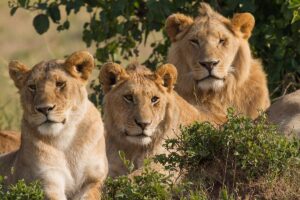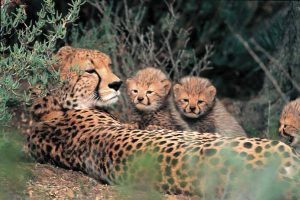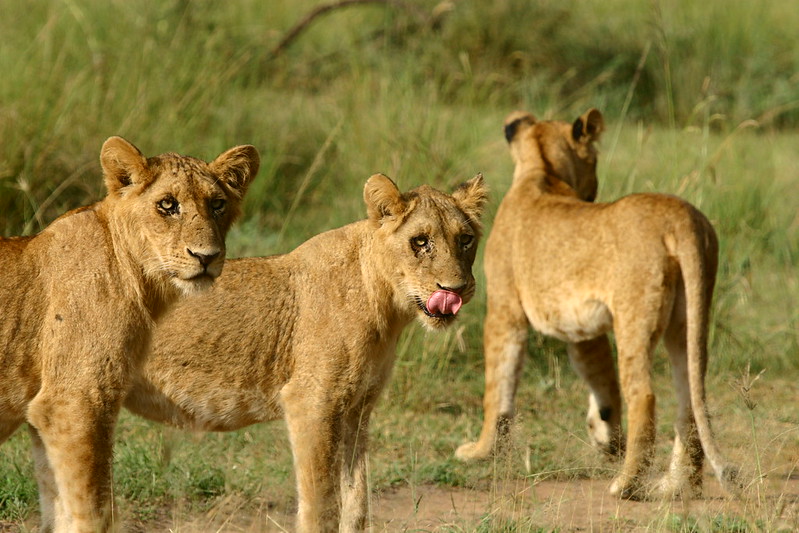5 Reasons Why Lions Consume Leopards, Cheetahs, and Hyenas: Exploring Nature’s Complex Predatory Dynamics

Exploring Nature’s Complex Predatory Dynamics, Nature’s food chain is a labyrinth of survival, where every creature plays a role in maintaining the delicate balance of ecosystems. Lions, often referred to as the kings of the jungle, are apex predators that sit atop this hierarchy. Their dietary preferences are both intriguing and essential to understanding the intricate web of life. One particularly intriguing aspect of their diet is their consumption of leopards, cheetahs, and hyenas. In this article, we delve into the fascinating reasons behind this phenomenon.
1. Competition for Resources:
The African savannah is a fiercely competitive environment, with limited resources like water, shelter, and prey. Lions, being larger and more socially organized, often have an advantage in securing these resources. Leopards, cheetahs, and hyenas, on the other hand, are their competitors in this intricate battle for survival. By eliminating these competitors, lions can increase their access to valuable resources, ensuring their own survival and the success of their pride.
2. Eliminating Potential Threats:



While leopards, cheetahs, and hyenas might not be the primary prey of lions, they do pose a potential threat. Leopards are known for their ability to hoist prey into trees to avoid scavengers, potentially depriving lions of a meal. Cheetahs, though swift, can become victims of opportunistic lion attacks. Hyenas are formidable scavengers and can pose a challenge to lions by stealing their kills. By preying on these competitors and threats, lions reduce the likelihood of facing challenges to their dominance.
3. Taking Advantage of Vulnerabilities:
Lions skilled hunters, but they also opportunistically scavenge when the opportunity arises. When leopards, cheetahs, or hyenas are weakened due to injury, sickness, or even an ongoing confrontation with other predators, they become easier targets. Lions, known for their strength in numbers, are more likely to succeed in taking down a weakened individual, securing a meal without expending as much energy as a full-fledged hunt.
4. Dietary Adaptation:
Lions are known for their versatile diet, and their choice of prey reflects their adaptability. While they prefer larger herbivores, the consumption of leopards, cheetahs, and hyenas might be a response to the changing availability of prey. In times of scarcity, lions may resort to hunting these smaller predators, showcasing their ability to adjust their diet based on the prevailing circumstances.
5. Influence of Pride Dynamics:
Meanwhile, Within a lion pride, different individuals have distinct roles. While females are usually the primary hunters, males play a vital role in defending the territory. Lions might consume leopards, cheetahs, and hyenas as a way to reinforce pride unity and solidarity. Sharing a meal of a common enemy could foster a sense of cooperation among pride members, ultimately enhancing their ability to protect their territory and resources.
In conclusion, the consumption of leopards, cheetahs, and hyenas by lions is a multifaceted phenomenon driven by factors such as competition, threat elimination, vulnerability exploitation, dietary adaptation, and pride dynamics. As we unravel the intricate relationships between predators and their prey, we gain a deeper appreciation for the intricate balance that sustains our natural world. While the sight of a lion consuming another predator might seem harsh, it’s a testament to the complexity and resilience of nature’s grand design.
Related Tours

